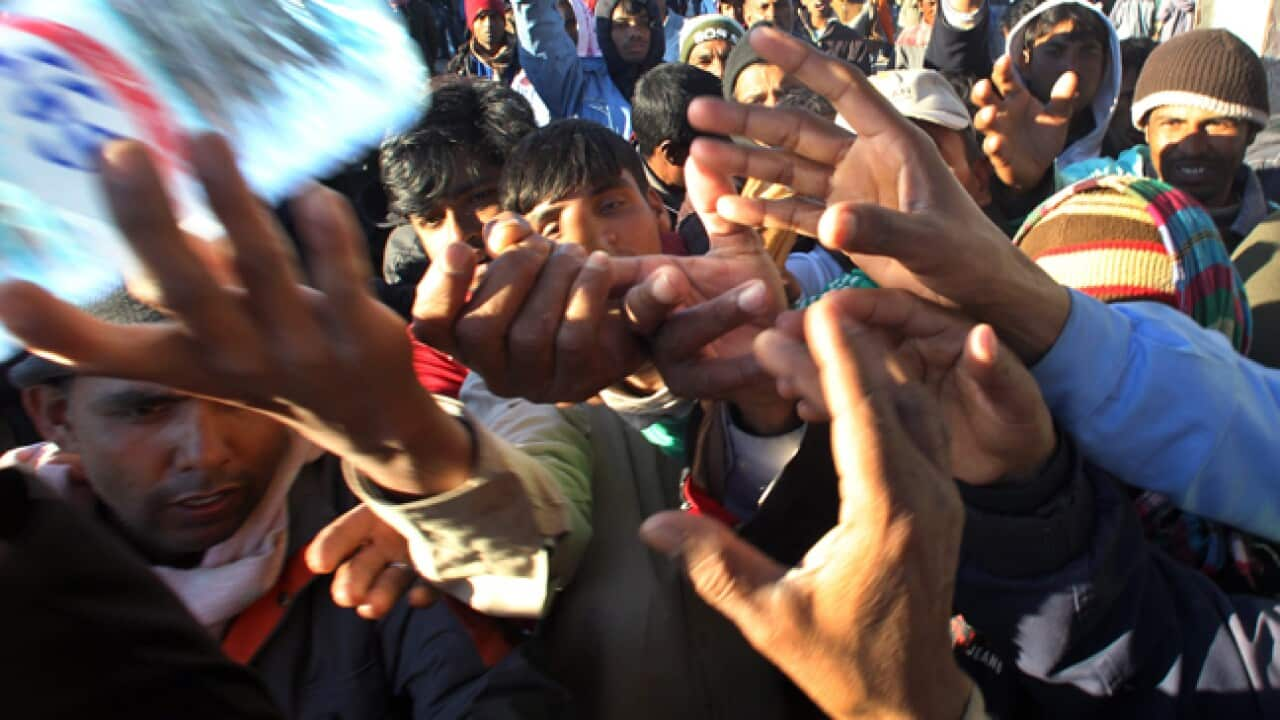Clinton, the most senior US official to visit Tunisia since mass protests erupted here in December and spawned similar movements across the Arab world, will meet with interim President Foued Mebazaa on Thursday.
The chief US diplomat, who made no statements to reporters on the flight from Cairo to Tunis, will also meet with Foreign Minister Mouldi Kefi and interim Prime Minister Beji Caid Essebsi.
And her visit will also take in meetings with young people who took part in the mass protests; and relief officials who have helped the more than 100,000 foreign workers and others who have fled fighting in neighboring Libya.
But dozens of Tunisians marched in Tunis under tight security Wednesday to protest Clinton's visit.
Demonstrators chanted: "No to normalisation, Tunisia is free and not for sale" or "Tunisia is an Arab country, neither imperialist nor Zionist."
It was the second demonstration in two days in the capital against the visit of Clinton.
When Clinton announced her plans to visit Egypt and Tunisia last week, she said she would convey the US intention to be "a partner in the important work that lies ahead as they embark on a transition to a genuine democracy."
Amid warnings about Iran's bid for influence in the Middle East, she told US lawmakers at the time that "we have an enormous stake in ensuring that Egypt and Tunisia provide models for the kind of democracy that we want to see."
Clinton said she would also push for 20 million dollars for Tunisia to "respond to some of their needs" after Tunisian officials clamored for US help, but hinted at more aid.
"We need to have a very big commitment to Tunisia, that we can be ready to help them economically as well as with their democratic transformation," said the secretary.
Standard & Poor's on Wednesday trimmed its long-term credit rating of Tunisia by one notch to BBB-, but said it viewed the political outlook as now stable following the overthrow of president Zine El Abidine Ben Ali.
Just over a week after Ben Ali fled to Saudi Arabia on January 14, Washington dispatched Jeffrey Feltman, the assistant secretary of state for Near East affairs, to Tunis.
Then William Burns, the US under-secretary of state for political affairs, visited Tunis last month.
The popular uprising against Ben Ali, who ruled with an iron fist for 23 years, began after a 26-year-old fruit vendor, Mohammed Bouazizi, set fire to himself to protest police abuses.
It sparked similar protests in Egypt, where president Hosni Mubarak was toppled on February 11, as well as in many other countries, including in Bahrain, Oman, Yemen and Libya.
However, Libyan leader Muammar Gaddafi launched a massive crackdown against the protests in his country, provoking a rebellion that his security forces seem in turn determined to crush.
Share

